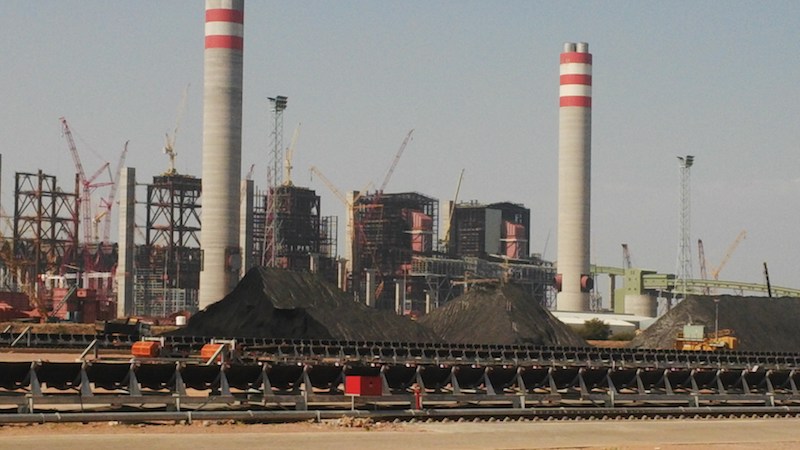China is seeking to clean up its overseas investments, a top green finance official told delegates at a conference in Paris on Monday, calling for international support.
Ma Jun, a special adviser to the governor of the People’s Bank of China, acknowledged the scale of China’s environmental impact abroad.
Beijing’s $900 billion “belt and road” initiative is building infrastructure across countries with three times China’s population, he noted. “If nothing is done… their emissions could be three times China’s emissions.”
His mission is to “make sure Chinese investors are seeking green investments in the belt and road region,” Ma said, adding: “We are now seeking more international support to help this effort.”
China: African coal deal signed days before Xi low emissions pledge
President Xi Jinping promised to “seize opportunities” in clean energy at the first belt and road forum in May.
China remains the world’s biggest investor in coal plants globally, however. A report by the Global Environment Institute identified 240 Chinese-backed coal projects in belt and road countries, notably India, Indonesia, Mongolia, Vietnam and Turkey.
Critics say China’s green finance guidelines are looser than international standards, with some high-efficiency coal plants classed as “green”.
By 2020 every listed company in China must disclosure information on environmental impacts #CFD2017 – MA Jun explains that without this information, the market cannot determine who is green – or not.
— Ian Cochran (@itcochran) December 11, 2017
Ma Jun, China doesn’t just employ green finance instruments it has a plan for a green financial system #CFD2017
— Charlene Watson (@WatsonCharlene) December 11, 2017
Ma’s comments came at a gathering of sustainable investors and business representatives hosted by France’s economics ministry.
He also outlined some of the ways China is encouraging green investment at home. These range from cheap money for banks that invest in green projects to requiring certain industries to take out pollution liability insurance. By 2020, he said all companies would be required to disclose information on their environmental impact.
“The basic logic is: we need a lot of money for green investments,” Ma said.
In opening remarks to the meeting, French environment minister Nicolas Hulot cited Hurricane Harvey and ongoing wildfires in California as examples of the cost of inaction.
“The financial sector together with climate change both know no borders,” he said. “This means that in this world it is also exposed to major risks due to the impact of climate change on the world economy.”
UN climate chief Patricia Espinosa agreed “the human cost is heartbreaking; the economic cost is immense”. While you can put a price tag on specific disasters, she said, “you cannot put a price on a stable, prosperous and secure future”.
The event comes a day ahead of president Emmanuel Macron’s One Planet Summit, which is also expected to focus heavily on finance. It comes on the second anniversary of the adoption of the Paris climate agreement.
Fifty heads of state are due to attend and announce coalitions to address issues such as phasing out coal and reducing emissions from shipping. Private sector representatives include leaders from HSBC, Norges Bank and Calpers.
